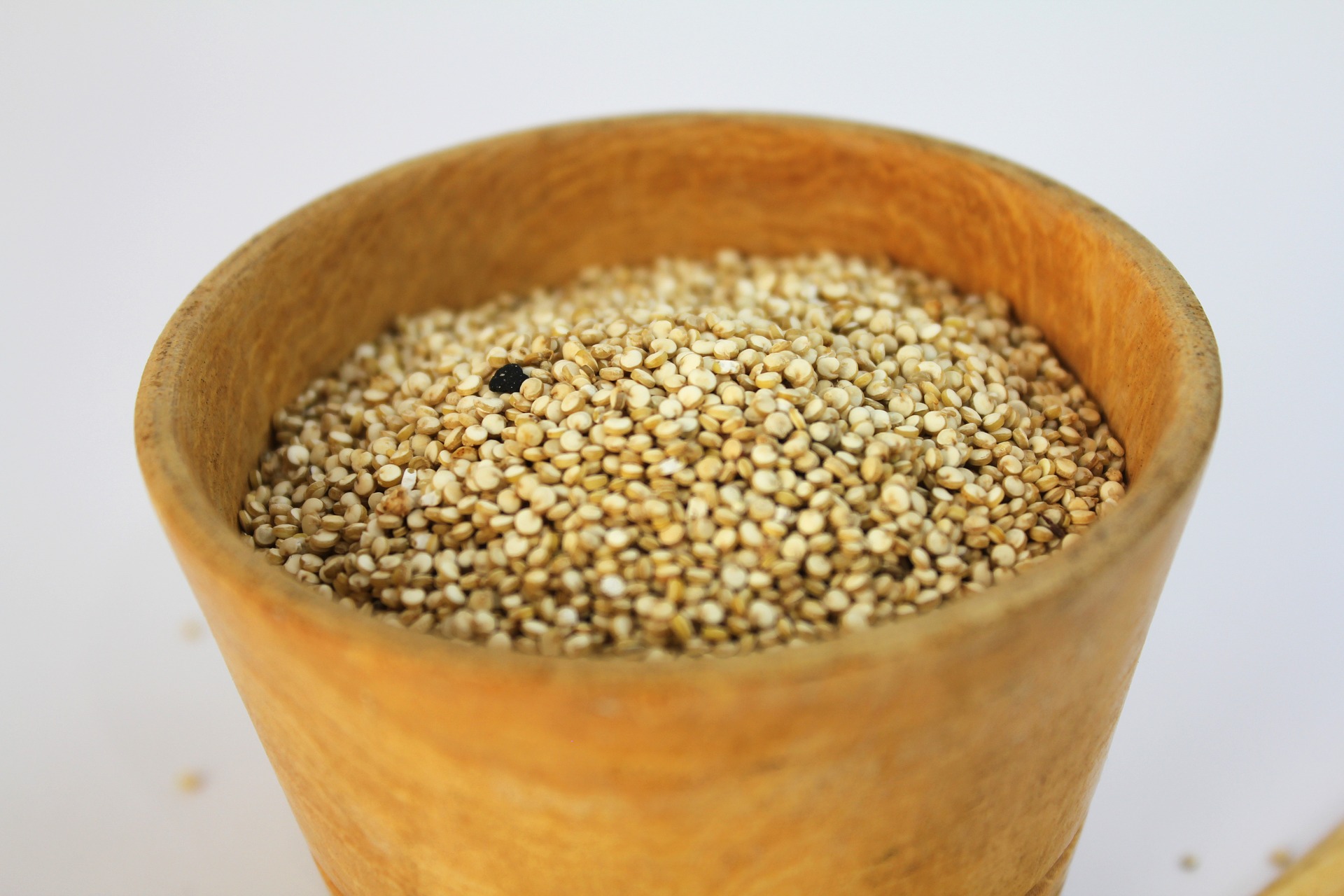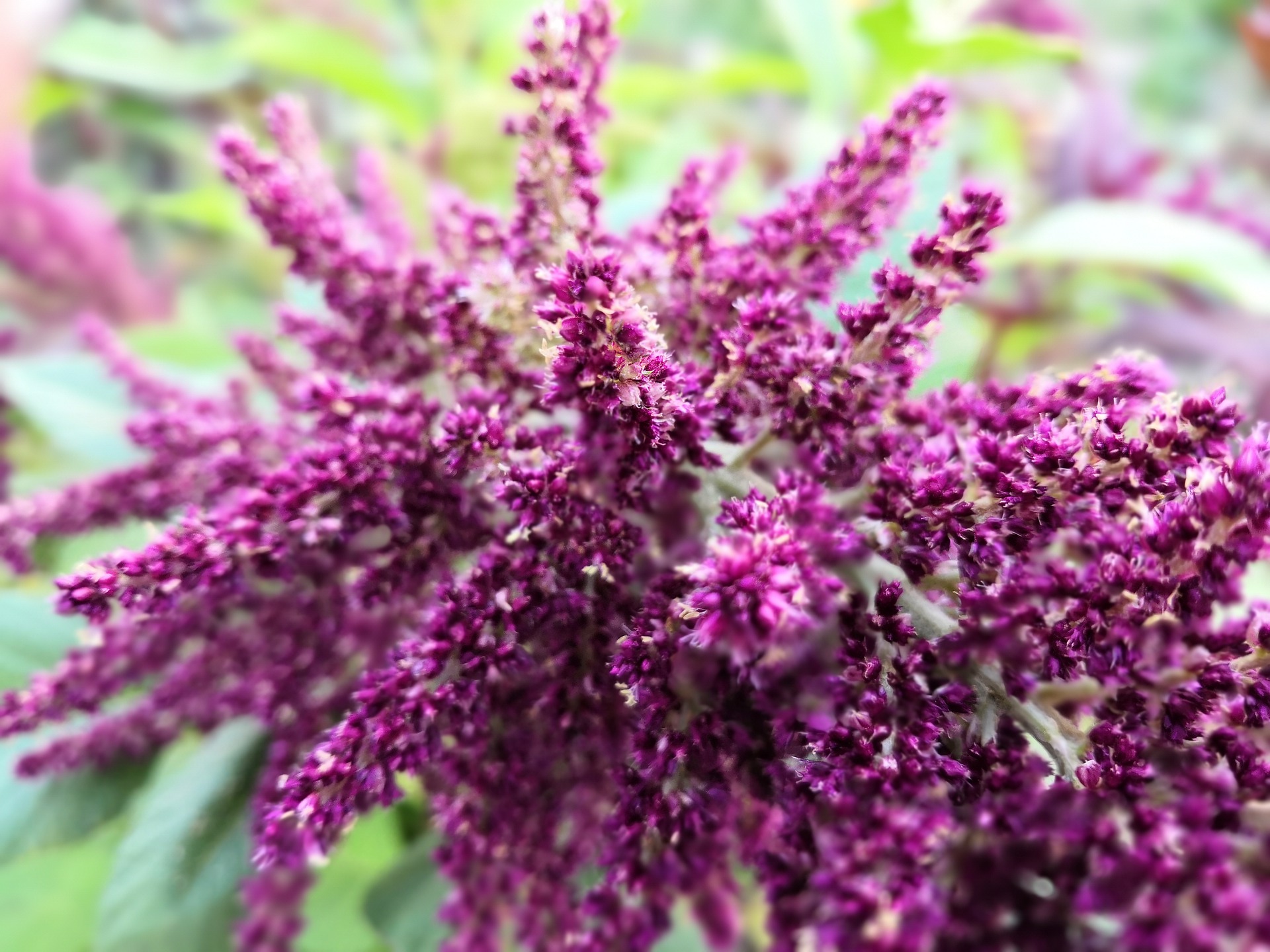
Amaranth (Amaranthus)
Plant:
Amaranth, native to countries like Peru and Mexico, is a pseudo-cereal, belonging to the Amaranthaceae family, just like chard, quinoa, or beet. The plant has a tall trunk and long green leaves, but it’s the seeds, produced through its purple, red, or golden-hued flowers that make it so popular. A success that is justified by the many benefits that the seeds offer to our health.
The round, hard and golden seeds – colored between yellow and beige – have properties similar to the union of beans and rice, that is, they are very rich in protein, fiber, and essential minerals for our body. But in addition, they also do not contain gluten, which is a great asset for those intolerant to this substance.
Most specialists agree that Amaranth seeds help regenerate muscle tissue after intense physical training. It is no coincidence that the Maya, Inca, or Aztec peoples already used Amaranth as a staple food in their diet.
Properties:
Anti-inflammatory, anti-degenerative, antioxidant, and astringent are some of the properties of Amaranth which contains nine essential amino acids for the body. This pseudocereal is rich in proteins, fibers, minerals, such as magnesium, calcium, phosphorus, iron, copper, selenium, and vitamins, in particular the B6.
Benefits
- anemia,
- arthritis,
- cholesterol,
- cardiovascular imbalances,
- premature aging,
- gout,
- hypertension,
- muscular mass,
- bones,
- weightloss,
- immune system,
- intestinal system…
How to consume it:
Amaranth can be eaten in grains, flakes, flour, or oil. Amaranth beans can be used as ingredients for salads, soups, cooked as a substitute for rice, or even as an appetizer like popcorn. Amaranth leaves, on the other hand, can be served in a variety of dishes, as they have a flavor very similar to spinach.
Contraindication :
People with diabetes due to the high glycemic index, as well as those with kidney imbalances, as the high concentration of protein, can overload the kidneys. In addition, it is important to be aware of this, because each organism is different and can cause possible incompatibilities, total or momentary, generated by its ingestion.

This text is an awareness. Depending on the season of the year and the moment in which you are, it is up to each Being to feel whether he should consume this food. The dosage and frequency depend on the nature and physical condition of each Human Being.
Learn more about seeds on:
Seeds are sources of life, but pay attention to its energy validity




